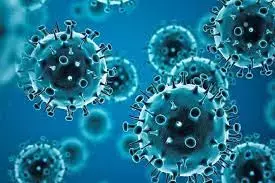- Home
- Medical news & Guidelines
- Anesthesiology
- Cardiology and CTVS
- Critical Care
- Dentistry
- Dermatology
- Diabetes and Endocrinology
- ENT
- Gastroenterology
- Medicine
- Nephrology
- Neurology
- Obstretics-Gynaecology
- Oncology
- Ophthalmology
- Orthopaedics
- Pediatrics-Neonatology
- Psychiatry
- Pulmonology
- Radiology
- Surgery
- Urology
- Laboratory Medicine
- Diet
- Nursing
- Paramedical
- Physiotherapy
- Health news
- Fact Check
- Bone Health Fact Check
- Brain Health Fact Check
- Cancer Related Fact Check
- Child Care Fact Check
- Dental and oral health fact check
- Diabetes and metabolic health fact check
- Diet and Nutrition Fact Check
- Eye and ENT Care Fact Check
- Fitness fact check
- Gut health fact check
- Heart health fact check
- Kidney health fact check
- Medical education fact check
- Men's health fact check
- Respiratory fact check
- Skin and hair care fact check
- Vaccine and Immunization fact check
- Women's health fact check
- AYUSH
- State News
- Andaman and Nicobar Islands
- Andhra Pradesh
- Arunachal Pradesh
- Assam
- Bihar
- Chandigarh
- Chattisgarh
- Dadra and Nagar Haveli
- Daman and Diu
- Delhi
- Goa
- Gujarat
- Haryana
- Himachal Pradesh
- Jammu & Kashmir
- Jharkhand
- Karnataka
- Kerala
- Ladakh
- Lakshadweep
- Madhya Pradesh
- Maharashtra
- Manipur
- Meghalaya
- Mizoram
- Nagaland
- Odisha
- Puducherry
- Punjab
- Rajasthan
- Sikkim
- Tamil Nadu
- Telangana
- Tripura
- Uttar Pradesh
- Uttrakhand
- West Bengal
- Medical Education
- Industry
ivermectin effective in outpatients with mild to moderate COVID-19

Ivermectin effective in treating outpatients with mild to moderate COVID-19 suggests a recent study published in the JAMA.
The effectiveness of ivermectin to shorten symptom duration or prevent hospitalization among outpatients in the US with mild to moderate symptomatic COVID-19 is unknown. A study was conducted to evaluate the efficacy of ivermectin, 400 μg/kg, daily for 3 days compared with placebo for the treatment of early mild to moderate COVID-19.
ACTIV-6, an ongoing, decentralized, double-blind, randomized, placebo-controlled platform trial, was designed to evaluate repurposed therapies in outpatients with mild to moderate COVID-19. A total of 1591 participants aged 30 years and older with confirmed COVID-19, experiencing 2 or more symptoms of acute infection for 7 days or less, were enrolled from June 23, 2021, through February 4, 2022, with follow-up data through May 31, 2022, at 93 sites in the US.
Participants were randomized to receive ivermectin, 400 μg/kg (n = 817), daily for 3 days or placebo (n = 774). Time to sustained recovery, defined as at least 3 consecutive days without symptoms were main outcomes. There were 7 secondary outcomes, including a composite of hospitalization or death by day 28.
Results:
- Among 1800 participants who were randomized 1591 completed the trial. The hazard ratio (HR) for improvement in time to recovery was 1.07
- The median time to recovery was 12 days in the ivermectin group and 13 days in the placebo group. There were 10 hospitalizations or deaths in the ivermectin group and 9 in the placebo group
- The most common serious adverse events were COVID-19 pneumonia and venous thromboembolism
Among outpatients with mild to moderate COVID-19, treatment with ivermectin, compared with placebo, did not significantly improve time to recovery. These findings do not support the use of ivermectin in patients with mild to moderate COVID-19.
Reference:
Naggie S, Boulware DR, Lindsell CJ, et al. Effect of Ivermectin vs Placebo on Time to Sustained Recovery in Outpatients With Mild to Moderate COVID-19: A Randomized Clinical Trial. JAMA. Published online October 21, 2022. doi:10.1001/jama.2022.18590
Keywords:
Naggie S, Boulware DR, Lindsell CJ, Effect, Ivermectin, Placebo, Time, Sustained, Recovery, Outpatients, Mild, Moderate, COVID-19, Randomized, Clinical Trial, JAMA
Dr. Shravani Dali has completed her BDS from Pravara institute of medical sciences, loni. Following which she extensively worked in the healthcare sector for 2+ years. She has been actively involved in writing blogs in field of health and wellness. Currently she is pursuing her Masters of public health-health administration from Tata institute of social sciences. She can be contacted at editorial@medicaldialogues.in.
Dr Kamal Kant Kohli-MBBS, DTCD- a chest specialist with more than 30 years of practice and a flair for writing clinical articles, Dr Kamal Kant Kohli joined Medical Dialogues as a Chief Editor of Medical News. Besides writing articles, as an editor, he proofreads and verifies all the medical content published on Medical Dialogues including those coming from journals, studies,medical conferences,guidelines etc. Email: drkohli@medicaldialogues.in. Contact no. 011-43720751


